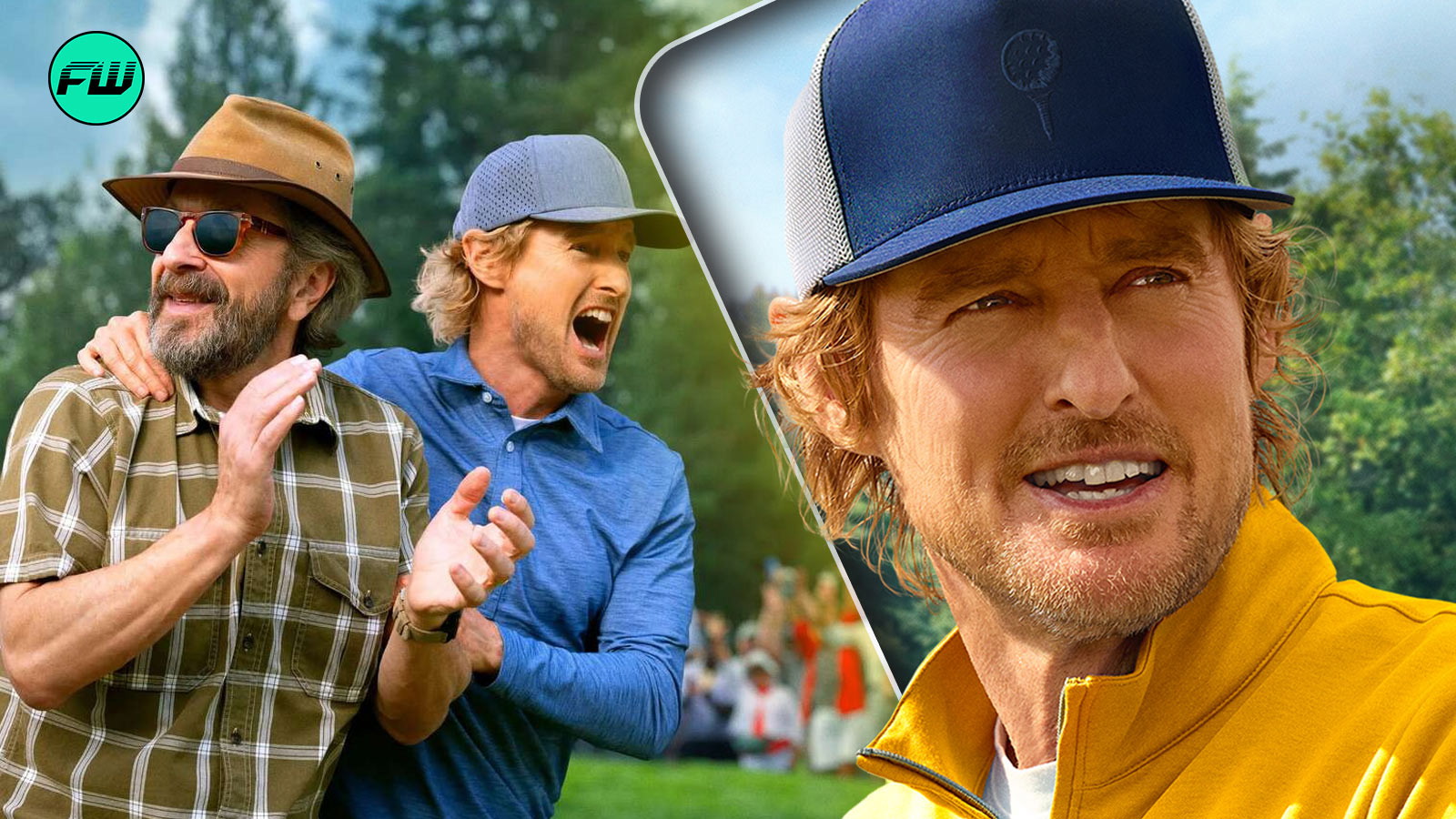
“Every kid is one bad mentor away from quitting his own brilliance.” That’s a line I’d scribble in the margins of Stick Episode 4, if the episode were a page from a journal. This episode doesn’t just pick up where the last one left off; it pries open old wounds, lights some fresh ones, and then slaps a $10,000 bandage on top, just to keep things interesting.
Written by Esti Giordani and directed by David Dobkin, this chapter turns a quarry into a battleground for pride, grief, and a mentorship that’s more combustible than coherent. Owen Wilson’s Pryce Cahill is spiraling between redemption and regression. Santi is just trying to be a kid, while Zero, a Gen Z oracle of anti-capitalist rebellion, becomes the unexpected wedge and the unwilling glue. There’s guilt, gaslighting, genuine regret, and a unicorn floaty.
I watched this episode, smirking, sighing, and slightly stunned.
Pryce Cahill: A man stuck in the rough

Pryce Cahill (Owen Wilson) isn’t just mentoring Santi; he seems to be reliving his own trauma by proxy with all the subtlety of a man punching air in khakis. The irony is brutal: he wants to undo what Santi’s father did to the kid but ends up mirroring that very behavior. Aggressive pep talks, a dismissive tone, pushy drills, it’s like he’s trapped in the coaching equivalent of muscle memory.
And yet, you can’t hate the guy. There’s genuine ache behind his efforts. Pryce is the kind of broken man who confuses yelling with teaching and regret with redemption.
Wilson does a commendable job here – less deadpan, more emotionally chaotic. But he’s still trapped in a script that’s not always sure if it wants to be a sports dramedy or a father-son grief saga. When Pryce dives into the quarry pool fully clothed, it’s not just comedy; it’s desperation soaked in chlorine.
Santi Wheeler: A prodigy who’d rather swim
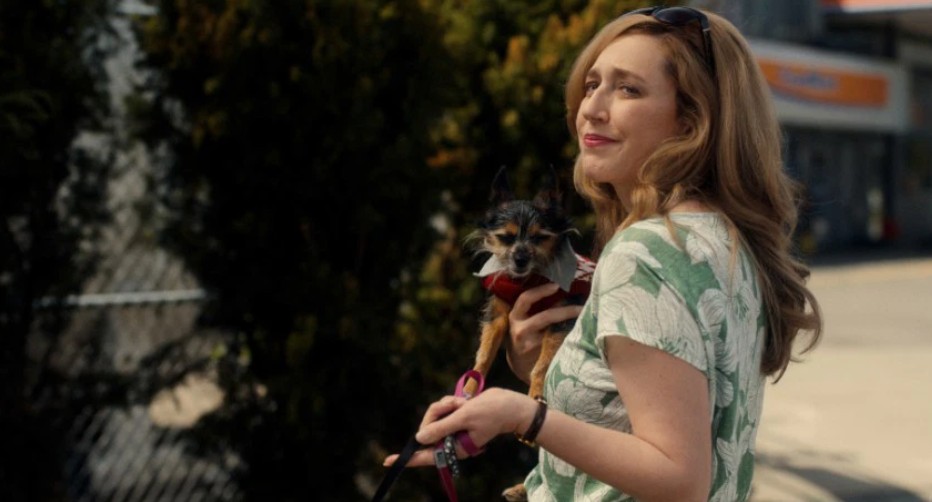
Peter Dager’s Santi is a walking contradiction; he hits like a prodigy but flinches like a kid still recovering from invisible bruises. His quiet defiance is more powerful than Pryce’s rants. And Episode 4 finally lets him speak. He lays out the emotional toll of toxic mentorship, the cyclical pain of “tear you down, build you up, repeat” parenting.
His monologue at the quarry? Sharp, loaded, and disturbingly mature. I nearly applauded. It’s clear now that this show isn’t just about golf; it’s about how we remember pain and how quickly we run from anyone who reminds us of it.
Still, his sudden pivot into teenage rebellion feels a tad overcooked. Sure, he’s charmed by Zero’s DIY philosophy and anti-corporate rants – what sixteen-year-old with parental trauma isn’t? But he swings from cold shoulder to full-blown spiritual disciple a little too conveniently.
Zero: The caddy, the muse, the secret pawn
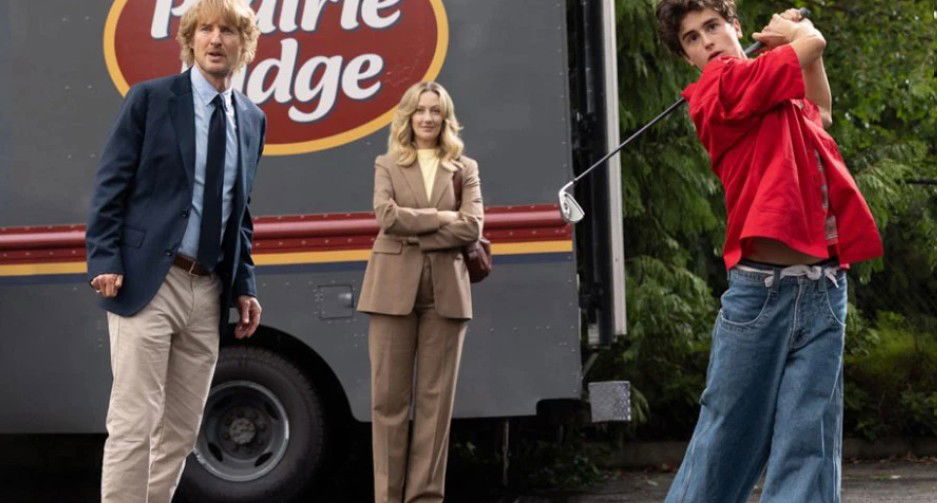
Zero (Lilli Kay) is this episode’s strange wildfire – unpredictable, oddly magnetic, and hard to place. One minute, she’s dunking on capitalism and feeding ducks chia seeds, the next she’s accepting a $10,000 promise and a Ryder Cup ring from a stranger. Giordani’s writing of Zero is both hilarious and risky. She’s Gen Z distilled into human form – suspicious of institutions, fluid with principles, and somehow allergic to sandwiches.
But her character’s inclusion works. She isn’t just comic relief- she’s the narrative disruptor. By making her the new caddy, Pryce tries to hack the mentorship algorithm using teenage hormones. And that’s where the ethical red flags start flapping in full force.
Props to the actress playing Zero – she delivers each anti-McDonald’s line like it’s a TED Talk and still makes it believable. She walks that tightrope between charming and conniving like she’s done it before.
The emotional bunker: Unpacking Pryce’s past
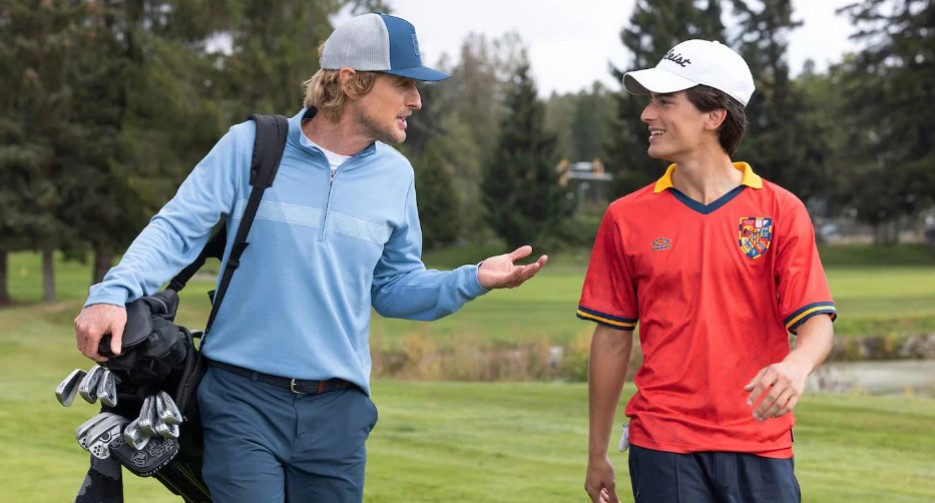
For a show that mostly lives in half-smirks and awkward glances, Episode 4 suddenly decides to punch us in the gut. Pryce’s son died. His breakdown at Sawgrass wasn’t just bad sportsmanship; it was an unprocessed grief bomb going off. That information recontextualizes everything we’ve seen from him.
Elena’s accidental jab is devastating precisely because we know what it costs him to swallow it without flinching. We also get our first real clue into how silent trauma can calcify into shame. His meltdown wasn’t televised shame; it was televised heartbreak in disguise.
The flashbacks would’ve made this stronger, but even without them, Wilson’s haunted expressions sell it. It’s the one moment where the comedy takes a respectful step back.
Mitts and Elena: The grown-ups in the room
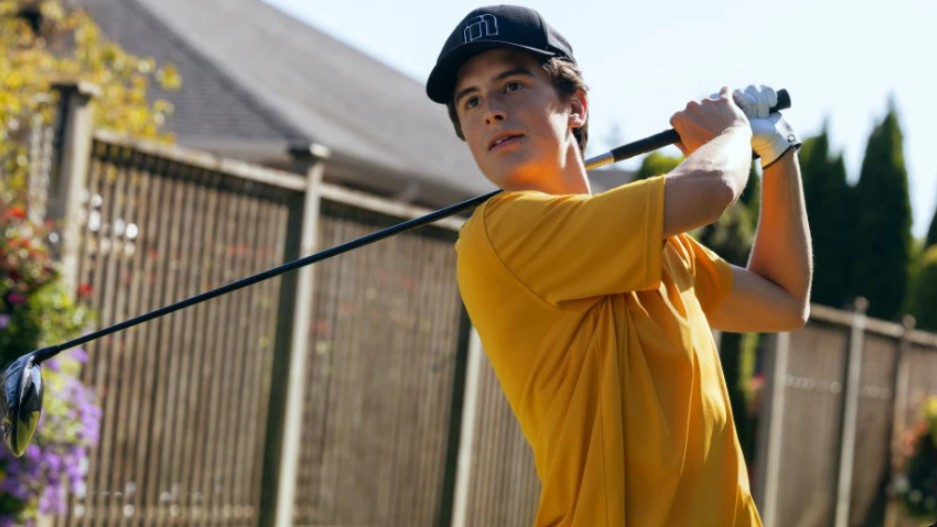
Mitts (Marc Maron) continues to be the show’s eye-rolling compass. He says what we’re all thinking, and yet, he keeps showing up. That’s love… not loud, not sentimental, just there. Elena, on the other hand, emerges as a quiet powerhouse. Her trust in her son isn’t naïve; it’s her armor. Together, they have more chemistry than some of the main arcs. I wouldn’t mind a spinoff with just them taking long walks and complaining about these kids.
A floaty, a quarry, and the moment everything goes south
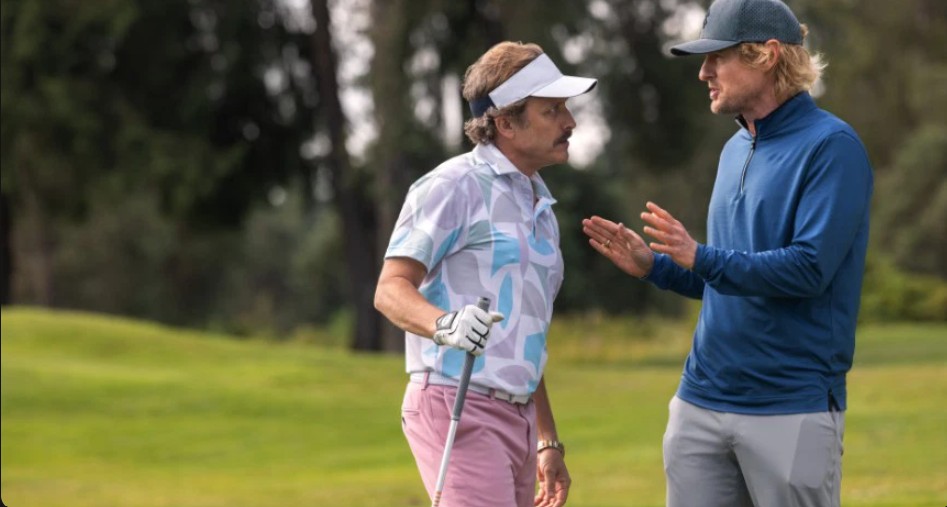
The quarry sequence is absurd, but in the best way. There’s something both hilarious and oddly tense about watching a grown man paddle into a pool full of teenagers with nothing but a sandwich and a plea. The forced unicorn floaty policy? That’s satirical gold.
But what follows is brutal honesty. Santi’s explanation of his trauma is clinical and scalding. “You act like my dad. You break me, then act like you didn’t. That’s worse.” Oof. The show hits its emotional stride here, finally willing to let discomfort sit in the room.
The dialogue dances dangerously close to heavy-handed, but the performances save it. There’s a poetic kind of damage in Pryce’s silence, and Santi’s fury feels earned.
The big bribe: When morality takes a back nine
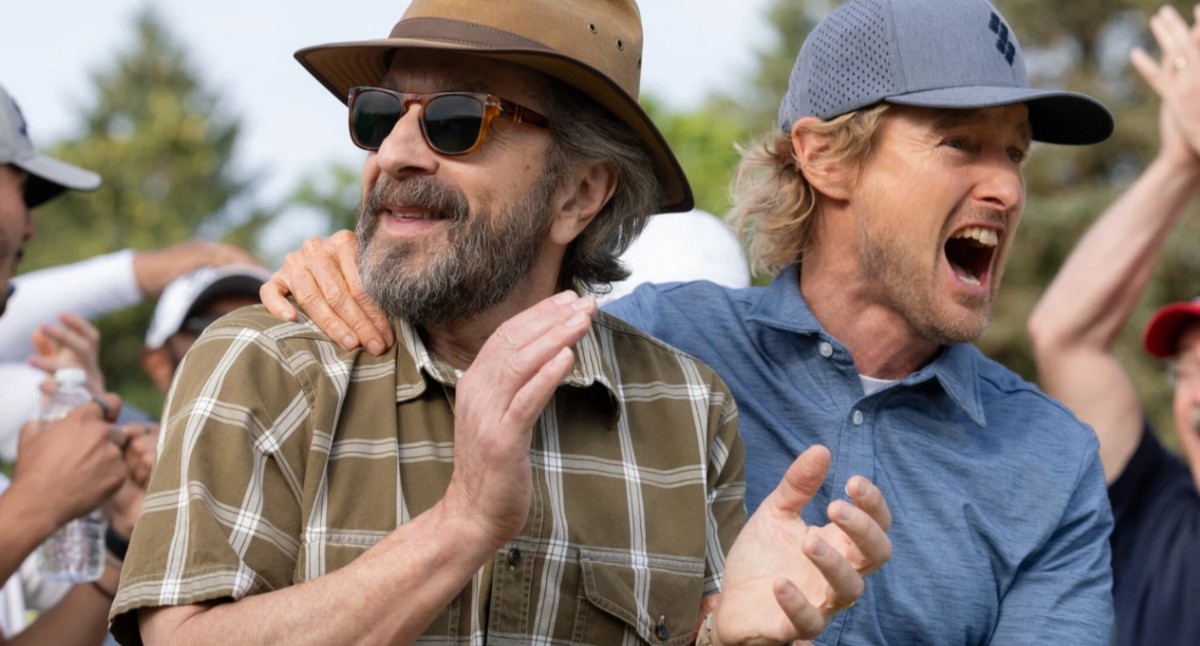
Let’s talk about the $10,000 promise and that Team USA Ryder Cup ring. First off, who uses their highest career honor as collateral in a teen manipulation scheme? Oh, right, Pryce Cahill. It’s a hilariously tragic move, equal parts desperate and stupid. And it works.
But it opens a massive narrative can of worms. Santi is going to find out. We all know it. And when he does, this entire fragile web of forced mentorship is going to snap like a cheap club on a concrete tee.
This isn’t just a setup for conflict; it’s a slow-burning betrayal. One with real stakes. You don’t heal a kid’s trust issues by secretly bribing their crush to lie to them.
Is Stick episode 4 worth watching?
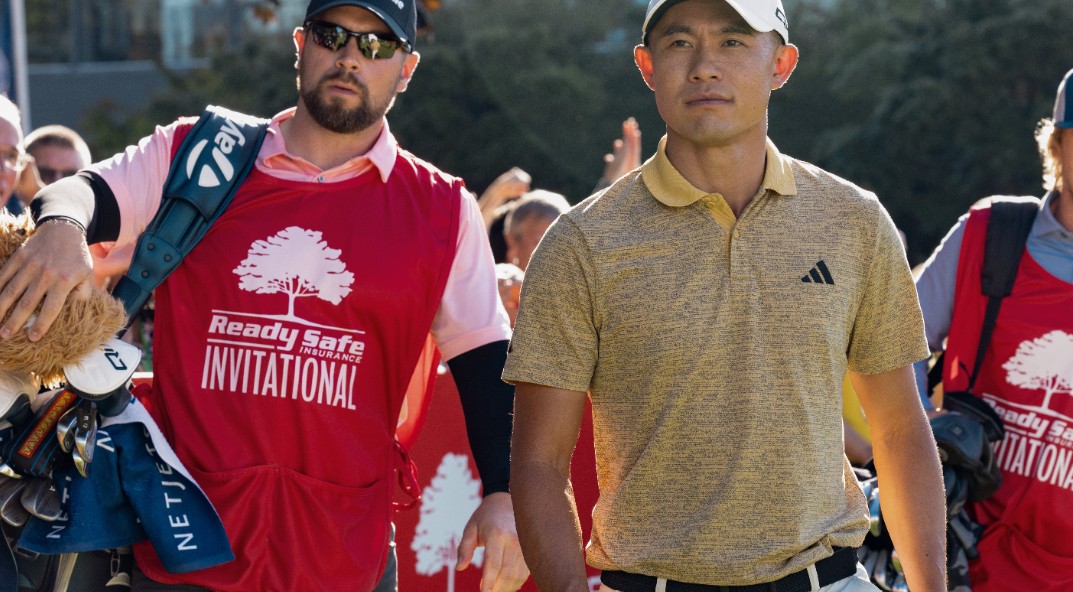
We’re watching people who are trying to change. Badly. Clumsily. Sometimes manipulatively. But they’re trying.
Episode 4 of Stick is a strange beast. At times, it leans so hard into its comedic absurdity that you wonder if it remembers the trauma underneath. And then, just when your guard is down, it punches you in the soul. I laughed. I cringed. I mentally yelled at Pryce.
I wanted to give Santi a hug and maybe slap Zero for agreeing to the scheme. But above all, I stayed invested. The show’s tonal inconsistency is still an issue. I believe it wants to be Ted Lasso and BoJack Horseman, and Little Miss Sunshine all at once. That’s a tall order. But in this episode, it begins to find a rhythm… messy, flawed, sometimes funny, sometimes not, but honest.
And maybe that’s the point!
Stick is available for streaming on Apple TV+ (USA).
This post belongs to FandomWire and first appeared on FandomWire
